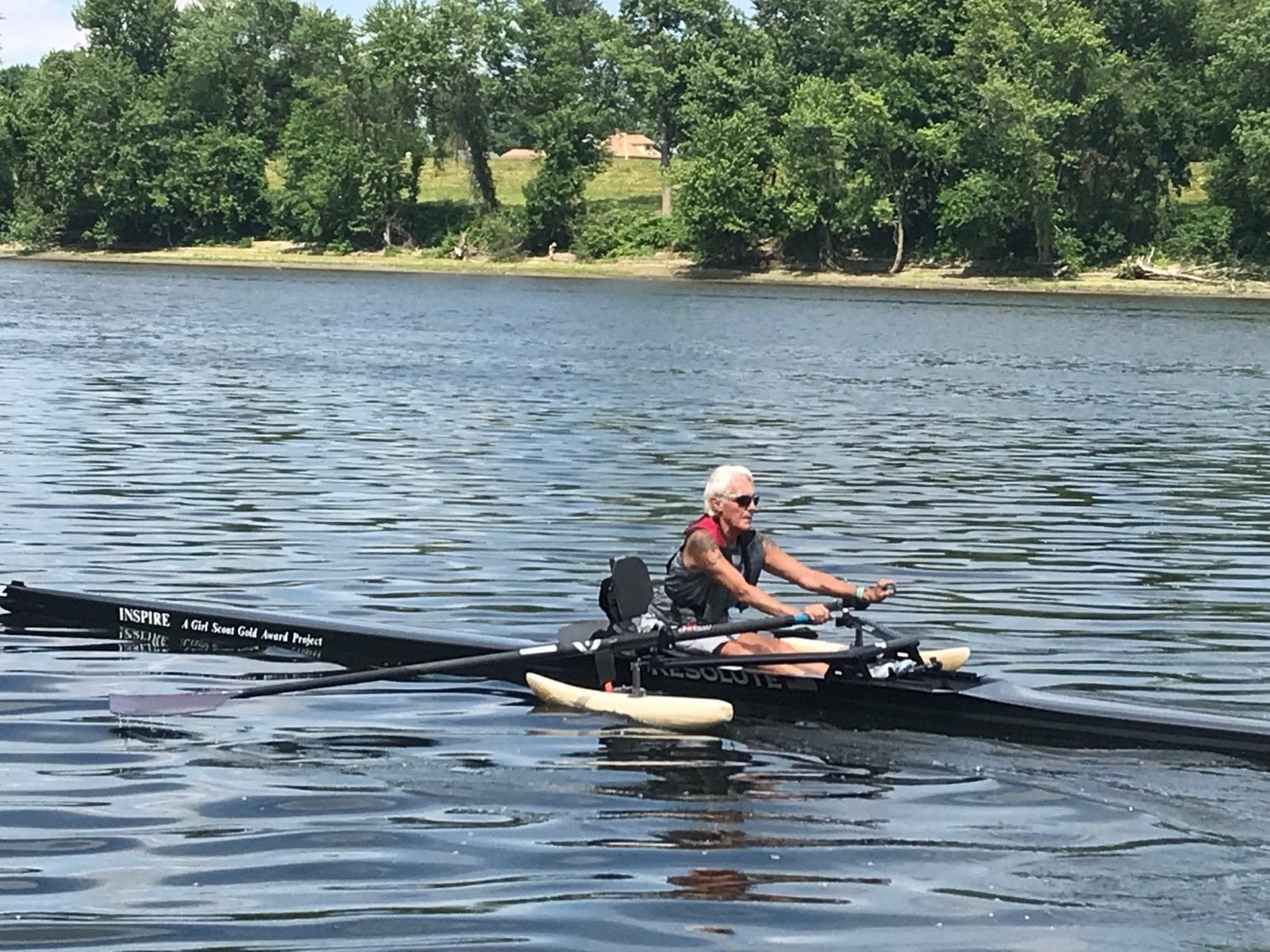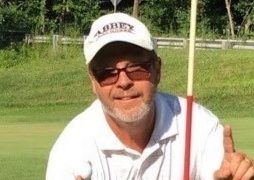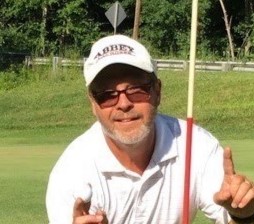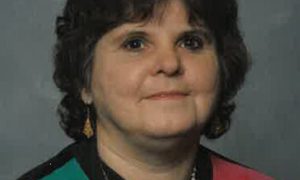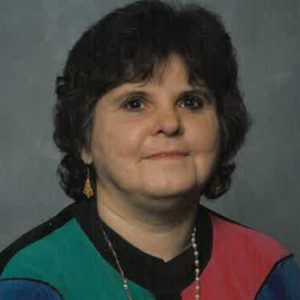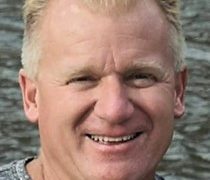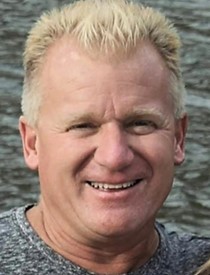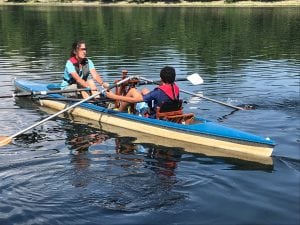
Moore is seen helping Miles Raynor row on the Connecticut River on Thursday. (Photo by Greg Fitzpatrick)
HOLYOKE – Having been diagnosed with polio at just nine months old, Bo Tanner has had to deal with the virus that settles in the spine. Tanner says that she’ll have complete feeling in her body, but it can be spotty. Pointing at her left leg, Tanner acknowledges that she can only feel her toes from the waist down, by quickly wiggling the toes on her left foot.
Despite having a disability, Tanner has never let that bring her down. It’s bright and sunny days like last Thursday where Tanner can be seen powerfully gliding through the waters of the Connecticut River. Almost every Thursday, Tanner is at Holyoke Rows, a summer youth program located on the Connecticut River, rowing on the water while also volunteering to help others.
Using a racing shell type of rower that is both fast and stable, Tanner enjoys the challenge of this kind of rower. She is a competitive rower and has competed in the Bayada Regatta numerous time. the Bayada Regatta is the oldest all-adaptive rowing competition in the United States for athletes that have disabilities.
“I judge my speed by looking at the shore,” said Tanner. “I found it to be much more stable.”
Having a spinal cord injury since she was three-years-old due to a car accident, Carlie Cook rowed for the first time last week and has enjoyed the experience thus far.
“I like trying new things,” said Cook. “I thought rowing was so much fun, a great experience, and something I’d like to pursue.”
Stephanie Moore, who works at Holyoke Rowing, would love to get Cook in a racing rower, called the Resolute.
“I have a secret competitive side so I’d be interested, but I’ll need a lot of practice,” said Cook.
Along with Tanner and Cook, Holyoke Rowing gives people with disabilities the opportunity to row, kayak, and canoe every Thursday. This opportunity is due to a partnership between Holyoke Rowing and the Massachusetts DCR (Department of Conservation and Recreation) Universal Access program.
Offering 450,000 acres of forests, parks, conservation areas, and bodies of water, the DCR allows people with disabilities of all ages, along with their family and friends, to experience all that DCR can provide. There are nearly 8,000 people throughout the state on the DCR mailing list that highlight programs from kayaking and rowing to cycling, skiing, fishing, and golf.
DCR programs extend throughout Massachusetts and most are free with some costing very little. Trying to make it as accessible as possible for individuals, the DCR’s mission is to make sure people go home happy after their time outside.
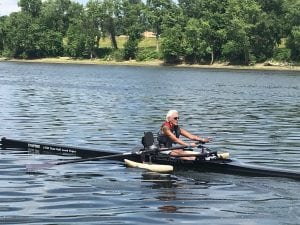
Tanner is a competitive rower and can be seen on the Connecticut River on most Thursdays. (Photo by Greg Fitzpatrick)
“We really encourage everyone to get outside. Just being outdoors shows that folks decrease levels of anxiety and stress,” said Leila Soleimani, the Outreach Coordinator for the DCR Universal Access program.
The rowing, kayaking, and canoeing on the Connecticut River lasts from May until August. Moore helps all of the participants get into their kayak, rower, or canoe. Moore gets a lot of praise for her effort in helping people comfortably fit into the equipment.
“She’ll adapt it to anybody,” said Tanner. “She’ll work with you.”
For Tanner, charging her way up and down the Connecticut River symbolizes a passion that hasn’t been restricted. The DCR program has allowed her to reach her fullest potential.
“I would love it someday that everyone that has these disabilities can do what they want,” said Tanner.

